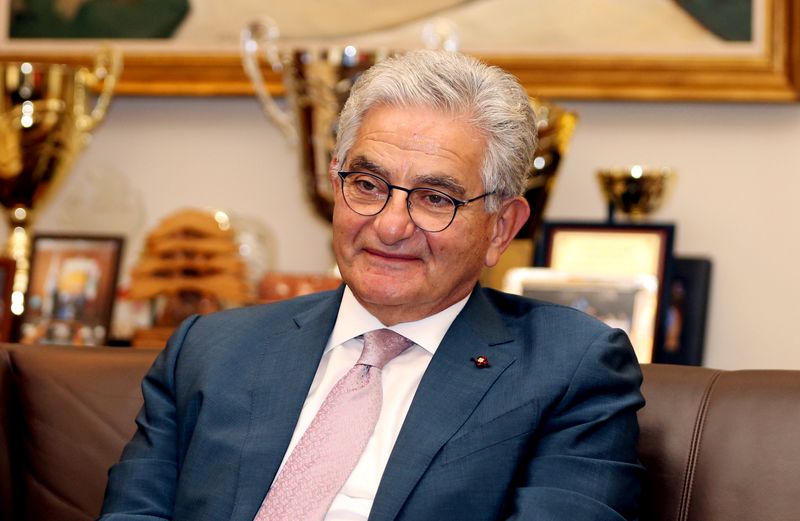BEIRUT (Reuters) – A French official has said it might be difficult for Lebanon’s banks to prevent savers losing some of their deposits, according to the minutes of a meeting in which France outlined steps to help the crippled banking industry.
The comments were made during Sept. 10 talks in Paris between senior French officials and a delegation from the Association of Banks in Lebanon (ABL). Reuters reviewed a copy of the minutes, marked confidential.
France has taken the lead in international efforts to push Lebanon’s fractious politicians to implement reforms needed to attract aid and ease a crisis that has paralysed the banking sector, shutting depositors out of most of their funds.
“While it is a matter of principle for the ABL that depositors should bear no losses, it may be difficult to defend this to the end. But this is a matter of negotiation,” Pierre Duquesne, President Emmanuel Macron’s envoy to coordinate international support for Lebanon, said, according to the minutes.
Lebanon’s central bank and commercial bankers have sought to prevent a “haircut”, or formal reduction in balances held on deposit accounts.
But savers with U.S. dollar accounts in Lebanon say they have already lost money as they cannot access funds or can only do so by exchanging into Lebanese pounds below market rates.
The Lebanese pound, which was pegged to the dollar for more than two decades, has crashed during the financial crisis.
The French Foreign Ministry had no immediate comment.
But a French diplomatic source said France was also pressing for an audit of Lebanon’s central bank and the financial sector to be “launched without delay in an effective manner.”
A senior Lebanese banker who participated in the talks told Reuters: “We felt throughout our meetings with senior French officials dealing with the president’s initiative, that they support a prosperous banking sector,”
According to the minutes, Duquesne listed other measures needed, including the swift implementation of capital controls and bank consolidation in a country with 64 banks controlled by 32 groups.
On restructuring Lebanon’s mountain of foreign and internal debt, Duquesne said a range of actions was needed. “There is no miracle solution,” he said.
The Lebanese banking group’s representatives, including the association’s head Salim Sfeir, said banks were ready to join “collective efforts” to resolve the crisis and outlined proposals that included their backing for a fund to mobilise state assets, the minutes showed.
(Reporting by Samia Nakhoul and Edmund Blair; Additional reporting John Irish in Paris; Writing by Edmund Blair; Editing by Tomasz Janowski)























